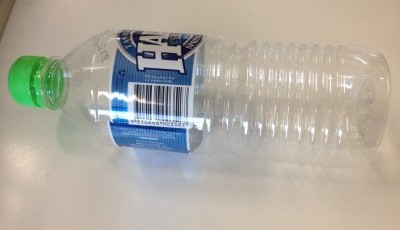Printable Chipless RFID Tags
April 21, 2015
on
on

A new generation of chipless RFID tags could soon be set to replace standard product barcodes. A research team at Monash University led by Dr Nemai Karmakar, from the Department of Electrical and Computer Systems Engineering, have been developing chipless radio frequency identification (RFID) tags that can be printed directly onto products and packaging - including postal items, drugs and books – potentially making this new technology cheaper, smaller and faster than any other tracking system on the market.
The team have succeeded in producing fully printable tags for products made of metal and containing liquids including water bottles and soft-drinks cans. Until now, this hasn't been possible because metal and liquids interfere with the technology. The tag can be printed using an inkjet printer and read when they are attached to reflective surfaces such as metal cans and water bottles.
Dr Karmakar said the team are believed to be the first to develop fully printable chipless RFID tags on paper and plastics. "The fact that chipless tags be printed directly onto products and packaging means the system is more reliable, smaller and cost effective than competing barcoding systems," Dr Karmakar said.
"The new chipless RFID technology is a high data-capacity mm-wave barcode system operating at 60 GHz. This means that although it is much smaller than any other commercially available chipless RFID tag it can still contain a relatively large amount of data and information. "The main challenge that we have overcome is to transfer the technology to paper and plastic while retaining the required printing resolution. Uniquely, the 60 GHz mm-wave tag is tolerant to printing errors and surface imperfections. Dr Karmakar also commented that the chipless RFID tag was suitable for use at temperatures above 80 degrees and also at cryogenic temperatures.
The team have succeeded in producing fully printable tags for products made of metal and containing liquids including water bottles and soft-drinks cans. Until now, this hasn't been possible because metal and liquids interfere with the technology. The tag can be printed using an inkjet printer and read when they are attached to reflective surfaces such as metal cans and water bottles.
Dr Karmakar said the team are believed to be the first to develop fully printable chipless RFID tags on paper and plastics. "The fact that chipless tags be printed directly onto products and packaging means the system is more reliable, smaller and cost effective than competing barcoding systems," Dr Karmakar said.
"The new chipless RFID technology is a high data-capacity mm-wave barcode system operating at 60 GHz. This means that although it is much smaller than any other commercially available chipless RFID tag it can still contain a relatively large amount of data and information. "The main challenge that we have overcome is to transfer the technology to paper and plastic while retaining the required printing resolution. Uniquely, the 60 GHz mm-wave tag is tolerant to printing errors and surface imperfections. Dr Karmakar also commented that the chipless RFID tag was suitable for use at temperatures above 80 degrees and also at cryogenic temperatures.
Read full article
Hide full article

